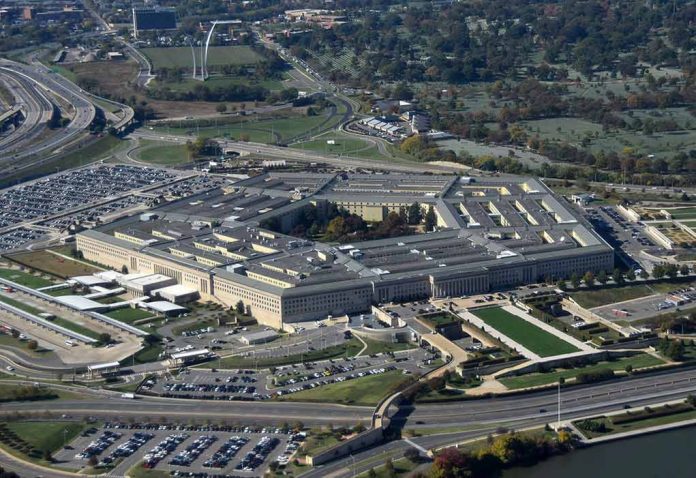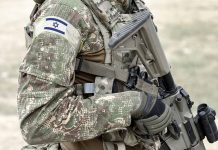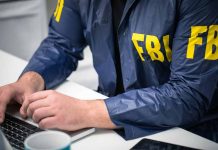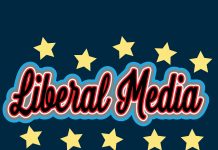
Former Pentagon official Luis Elizondo testifies to Congress about UAP crash retrievals, revealing government restrictions on disclosure and the existence of covert programs.
At a Glance
- Elizondo signed documents restricting his ability to discuss UAP crash retrieval programs.
- He confirmed U.S. government efforts to retrieve and reverse engineer potential alien craft.
- Elizondo reported injuries to government personnel related to UAP encounters.
- Rep. Nancy Mace expressed frustration over government secrecy on UAP activities.
Elizondo’s Testimony Reveals Government Secrecy
Luis Elizondo, a former Department of Defense official and UFO researcher, recently provided compelling testimony to Congress regarding unidentified anomalous phenomena (UAPs). During the hearing titled “Unidentified Anomalous Phenomena: Exposing the Truth,” Elizondo disclosed that he had signed non-disclosure agreements limiting his ability to speak on matters related to UAP crash retrievals. This revelation has sparked renewed interest in the government’s handling of potential extraterrestrial encounters.
Elizondo’s testimony confirmed the existence of government initiatives aimed at identifying and reverse engineering potentially extraterrestrial technology. When asked if the U.S. government had conducted covert UAP crash retrievals and attempted to reverse engineer alien craft, Elizondo responded with a simple “yes.” This affirmation suggests that the government has been actively involved in studying and potentially exploiting advanced technologies of unknown origin.
Today in a House Oversight Committee hearing focused on the UAP/UFO phenomenon, a former Pentagon official @LueElizondo will testify under oath that elements within government have possession of advanced technology which wasn’t made by humans.
“Let me be clear: UAP are real.… pic.twitter.com/EmNsWbmX37
— Joe Khalil (@JoeKhalilTV) November 13, 2024
Restrictions on Disclosure and Calls for Transparency
During his testimony, Elizondo revealed that he had signed documents three years ago that restricted his ability to discuss UAP crash retrieval programs. These documents are reportedly stored in a Sensitive Compartmented Information Facility (SCIF), with Elizondo not possessing a personal copy. This level of secrecy has raised concerns about the government’s transparency regarding UAP-related matters.
Elizondo strongly advocated for closed sessions that would allow for more in-depth discussions of sensitive information. He expressed a preference to speak more candidly about UAP-related matters in a closed setting, where he could provide additional details without violating the restrictions placed upon him by the government. This suggestion highlights the delicate balance between national security concerns and the public’s right to information.
UAP-Related Injuries and Government Response
One of the most startling revelations from Elizondo’s testimony was the confirmation of injuries sustained by government personnel attributed to UAP encounters. Elizondo stated, “That’s why I think we’re here — again — because I’ve seen the documentation by the U.S. government for several of these individuals who have sustained injuries as the result of a UAP incident.” This disclosure raises serious questions about the potential risks associated with UAP encounters and the government’s responsibility to protect its personnel.
According to Elizondo, government employees injured by UAPs have been placed on leave and received compensation. This information suggests that the government acknowledges the reality of these encounters and has taken steps to address the consequences. However, the extent of these injuries and the specific nature of the incidents remain unclear, further fueling calls for greater transparency.
Congressional Concerns and Demand for Answers
Rep. Nancy Mace expressed frustration over the government’s secrecy surrounding UAP-related activities. She questioned the use of taxpayer dollars on these programs and criticized the government’s efforts to hide information from the public. Mace’s concerns reflect a growing sentiment among lawmakers and the public for greater openness and accountability regarding UAP investigations.
As the hearing concluded, it became clear that while Elizondo’s testimony provided valuable insights into the government’s handling of UAP-related matters, it also raised numerous questions. The restrictions placed on Elizondo’s ability to disclose information highlight the ongoing tension between national security interests and the public’s desire for transparency. As investigations into UAPs continue, the balance between secrecy and disclosure will likely remain a contentious issue, with implications for both national security and public understanding of these phenomena.
Sources:
- Former Pentagon Official Testifies Govt Is Restricting What He Can Say About UFO Retrievals
- UFO whistleblowers tell Congress ‘we are not alone in the cosmos’ (video)















